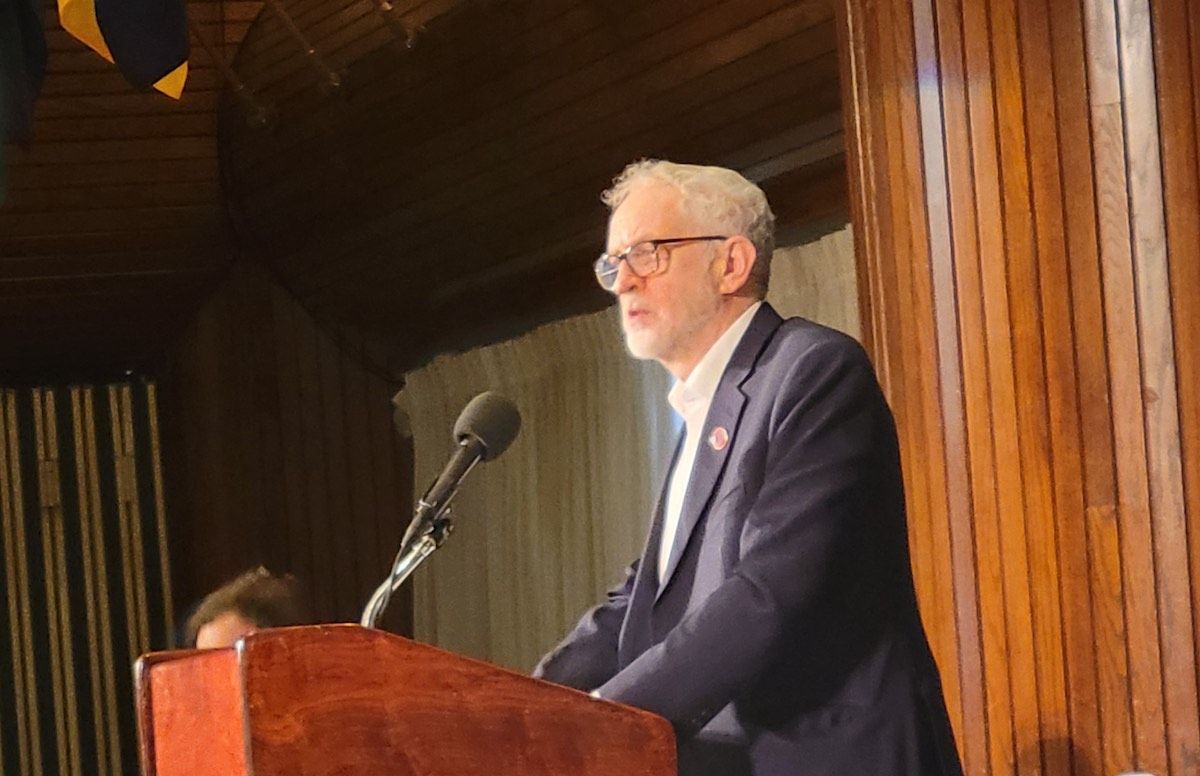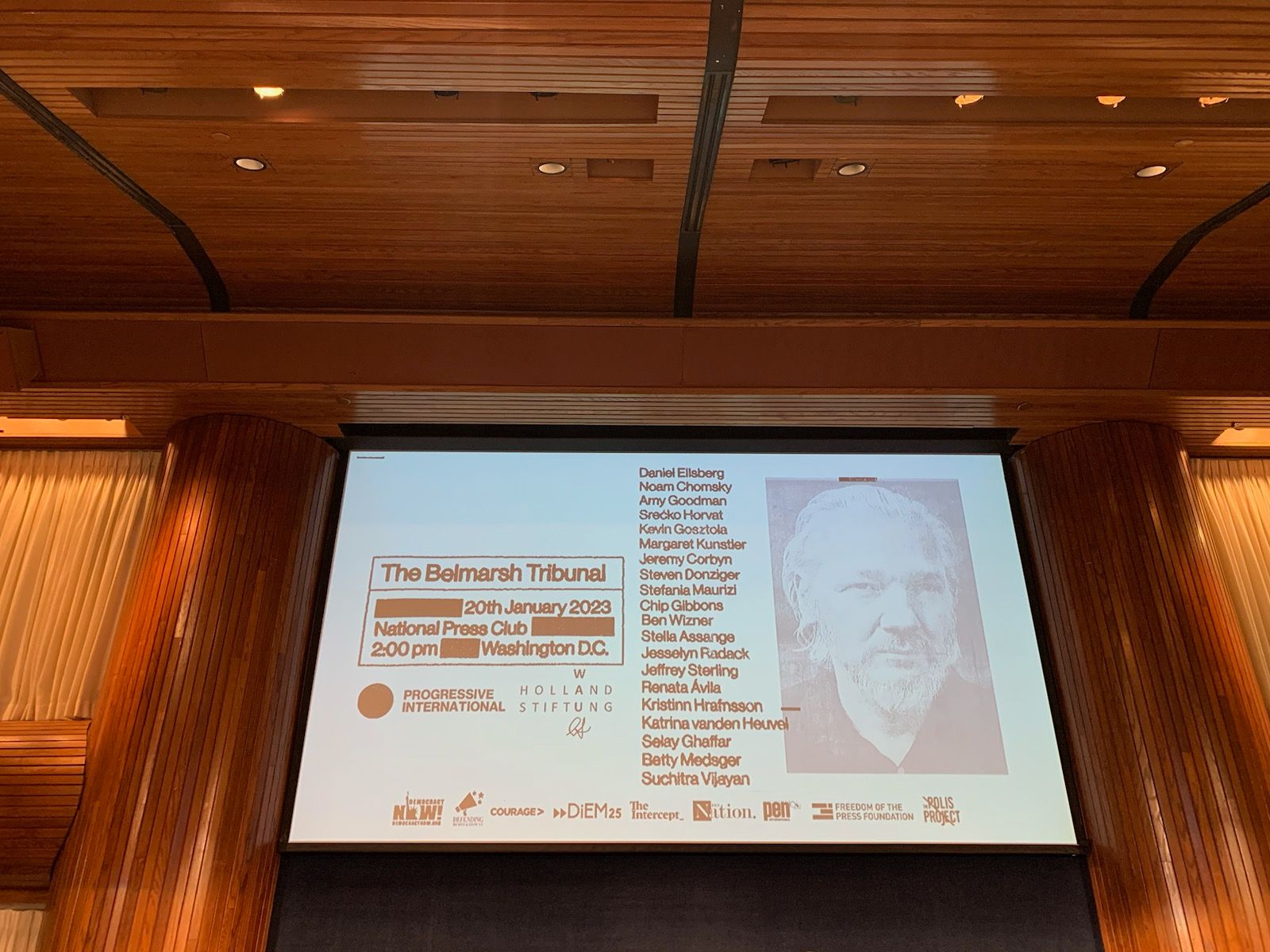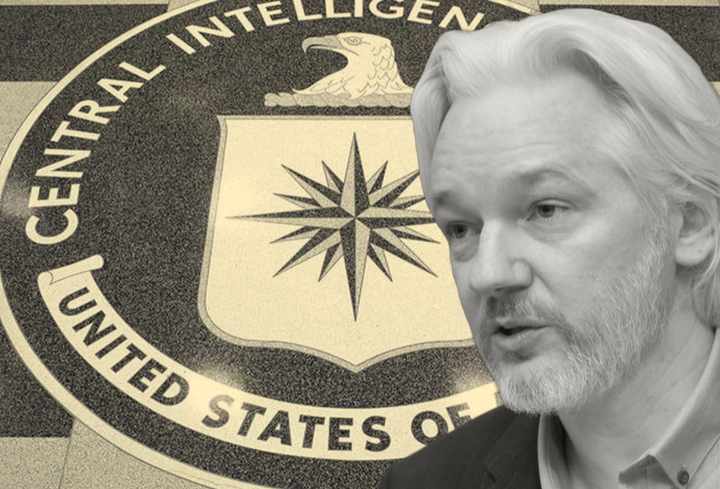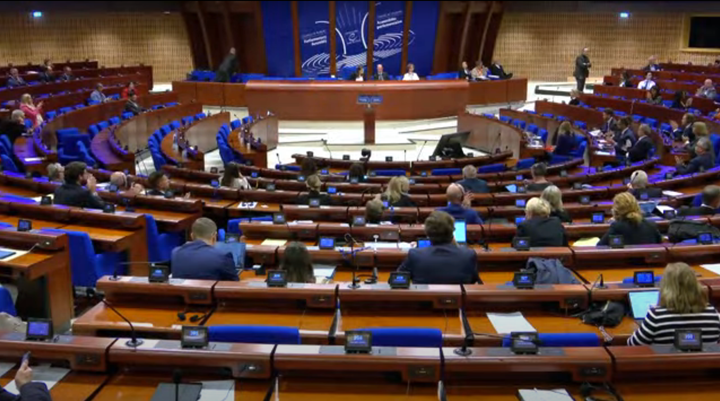The World Comes To DC To Demand Biden Drop The Case Against Julian Assange

This article was funded by paid subscribers of The Dissenter Newsletter. Become a monthly paid subscriber to help us publish more articles from guest contributors.
A group of legal experts, press freedom activists, journalists, and public figures filled a ballroom at the National Press Club in Washington, D.C., to organize international opposition to the United States government's extradition of WikiLeaks founder Julian Assange.
For the Belmarsh Tribunal, United Kingdom parliamentarian Jeremy Corbyn flew more than 3,670 miles to speak in person on January 20, 2023. Other speakers flew in from Italy and Croatia.
In fact, very few of the delegates on the tribunal organized by Progressive International were from the D.C. area.
This was the fourth iteration of the Belmarsh Tribunal. Previous editions were held online in London and New York. The gatherings of journalists, legal scholars, whistleblowers, and public figures represent growing international opposition to the United States’ attempt to extradite Australian publisher Julian Assange to the U.S. under Espionage Act charges.
Echoing leading civil liberties organizations and international newspapers, tribunal delegates made the case for why the prosecution against Assange poses an unprecedented threat to global press freedom.
Amy Goodman, host of "Democracy Now!" and tribunal co-chair, emphasized, "From Ankara to Manila to Budapest to right here in the United States, state actors are cracking down on journalists, their sources, their publishers in a globally coordinated campaign to disrupt the public’s access to information."
"A landmark case in this campaign is that of Julian Assange," Goodman added.
The International Implications Of The Assange Case
Nearly thirteen years ago, Julian Assange appeared at the National Press Club to show the world the "Collateral Murder" video.
At a time when the U.S. public still held some faith in the so-called “War on Terror” as a worthwhile endeavor, the leaked U.S. military footage revealed to the world the chaotic, often brutal nature of these U.S. interventions. It showed U.S. troops killing Iraqi civilians, as well as two Reuters journalists.
For exposing war crimes like those in the "Collateral Murder" video, Assange faces extradition to the U.S. where he would be tried under 17 counts of violating the Espionage Act. If convicted, he could be sentenced to 175 years in prison.
The charges announced while Donald Trump was president marked the first time the United States government had pursued an Espionage Act case against a publisher. President Joe Biden's administration has largely ignored calls to drop the charges.
As noted, there is no shortage of individuals and organizations warning that putting Assange on trial will have a chilling effect on the First Amendment. The threat has been recognized by the editorial board of The New York Times, the United Nations Working Group on Arbitrary Detention, the United Nations Special Rapporteur on Torture, and Pentagon Papers whistleblower Daniel Ellsberg, who was a delegate on the tribunal.
The case has international implications. Assange is an Australian citizen, but the United States has deemed it appropriate to try him under U.S. laws.
At best, this gives any undemocratic regime an easy opportunity to detract from their own attacks on the press by pointing the finger at the United States. At worst, it emboldens the U.S. to go after any reporter from any country of origin who publishes true and unflattering information about U.S. foreign policy. Plus, this case creates a playbook for other governments to copy in order to silence adversarial journalism.
Italian investigative journalist Stefania Maurizi testified at the Belmarsh Tribunal about her attempts to uncover the lengths the U.S. and other governments have gone to silence WikiLeaks and its sources. She closed her remarks with an appeal to the American public and media.
“I am aware that you are dealing with so much right now, but this case marks a point of no return for the United States and our democratic societies,” Maurizi contended. “In an authoritarian society, you cannot reveal war crimes, torture, and state criminality at the highest level, as Julian Assange did, and remain free and safe. They’ll kill you. In a democracy, it must be possible.”

An Appeal To Elected Politicians
Given the severity of the case, the Biden administration is facing growing condementation from organizations in the U.S. and around the world. The Belmarsh Tribunal and the organizations behind it have played an important role in amplifying the world’s calls for the United States to drop the charges against Assange.
Progressive International, which organized the tribunal, has focused on uniting various progressive movements, leaders, and media outlets from around the world.
The group has assembled prominent international voices, like Corbyn and Maurizi, through Belmarsh Tribunal events: President of Ecuador Rafael Correa, Greek economist and politician Yanis Varoufakis, former Guantanamo Bay detainee Mohamedou Ould Slahi, Afghan feminist Selay Ghaffar, Indian Marxist historian Vijay Prashad, and Croatian philosopher and regular co-chair of the Belmarsh Tribunal Srecko Horvat.
Horvat said during his opening remarks, "United States, it's really sad that someone like me has to come from Croatia to talk about the First Amendment."
In his testimony, WikiLeaks editor-in-chief Kristinn Hrafnsson spoke about meeting with various leaders of governments in Latin America over the past months, who denounced the case. These leaders included the presidents of Argentina, Bolivia, Brazil, Colombia, and Mexico.
The Belmarsh Tribunal will convene again in March in Sydney, Australia.
Last year, Anthony Albanese, the newly- elected Prime Minister of Australia urged the Biden administration to bring the pursuit of Assange to a "close."
Despite the international pressure, the Biden administration has given no indication that it intends to drop the charges. All but a few elected officials in the U.S. have remained silent about the case, with relatively little interest from members of Congress.
From the National Press Club, just a few blocks away from the White House, Corbyn directly called on elected officials in the United States to pay attention and break their silence.
“Some politicians in a number of countries have spoken up, but I appeal to elected politicians in the United States, speak up to defend democracy,” Corbyn said. “Speak up against the powers of the Espionage Act. And speak up for Julian Assange, because our human rights are under threat all over the world."
"Our actions around the world, in support of Julian, in support of the right to know can, and I believe will change the course of what’s going on.”
***
Dissenter Newsletter editor Kevin Gosztola, author of the forthcoming book Guilty of Journalism: The Political Case Against Assange, was one of the delegates who spoke on the Belmarsh Tribunal.
Here are his remarks (with a transcript of his testimony available here).




Comments ()